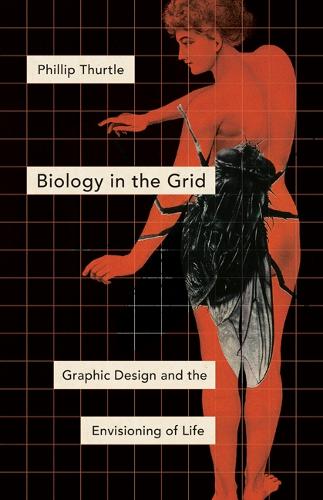
Biology in the Grid: Graphic Design and the Envisioning of Life
(Paperback)
Publishing Details
Biology in the Grid: Graphic Design and the Envisioning of Life
By (Author) Phillip Thurtle
University of Minnesota Press
University of Minnesota Press
1st January 2019
United States
Classifications
General
Non Fiction
Philosophy of science
The arts: general topics
570
Physical Properties
Paperback
296
Width 140mm, Height 216mm, Spine 38mm
Description
How grids paved the way for our biological understanding of organisms.
As one of the most visual sciences, biology has an aesthetic dimension that lends force and persuasion to scientific arguments: how things are arranged on a page, how texts are interspersed with images, and how images are composed reflect deep-seated beliefs about how life exists on Earth. Biology in the Grid traces how our current understanding of life and genetics emerged from the pervasive nineteenth and twentieth-century graphic form of the grid, which allowed disparate pieces of information to form what media theorist Vilm Flusser called "technical images."
Phillip Thurtle explains how the grid came to dominate biology in the twentieth century, transforming biologists' beliefs about how organisms were constructed. He demonstrates how this shift in our understanding of biological grids enabled new philosophies in endeavours such as advertising, entertainment, and even political theory. The implications of the arguments in Biology inthe Grid are profound, touching on matters as fundamental as desire, our understanding of our bodies, and our view of how society is composed. Moreover, Thurtle's beautifully written, tightly focused arguments allow readers to apply his claims to new disciplines and systems.
Bristling with insight and potential, Biology in the Grid ultimately suggests that such a grid-organized understanding of natural life inevitably has social and political dimensions, with society recognized as being made of interchangeable, regulated parts rather than as an organic whole.
Reviews
"Phillip Thurtle paves the way. Combining crucial insights from media theory and science history, he transforms our saturated understanding of biopolitics into a fresh and forceful analysis uncovering the political economy of todays life sciences. For all of us interested in epistemic media, critical vitalism, and interventionist thought, Biology in the Grid is compulsory reading."Henning Schmidgen, Bauhaus University Weimar
Author Bio
Phillip Thurtle is professor in the comparative history of ideas and history departments at the University of Washington. He is author of The Emergence of Genetic Rationality: Space, Time, and Information in American Biological Science, 18701920, coauthor of the interactive DVD-ROM Biofutures: Owning Body Parts and Information, and coeditor of Data Made Flesh: Embodying Information and Semiotic Flesh: Information and the Human Body.
